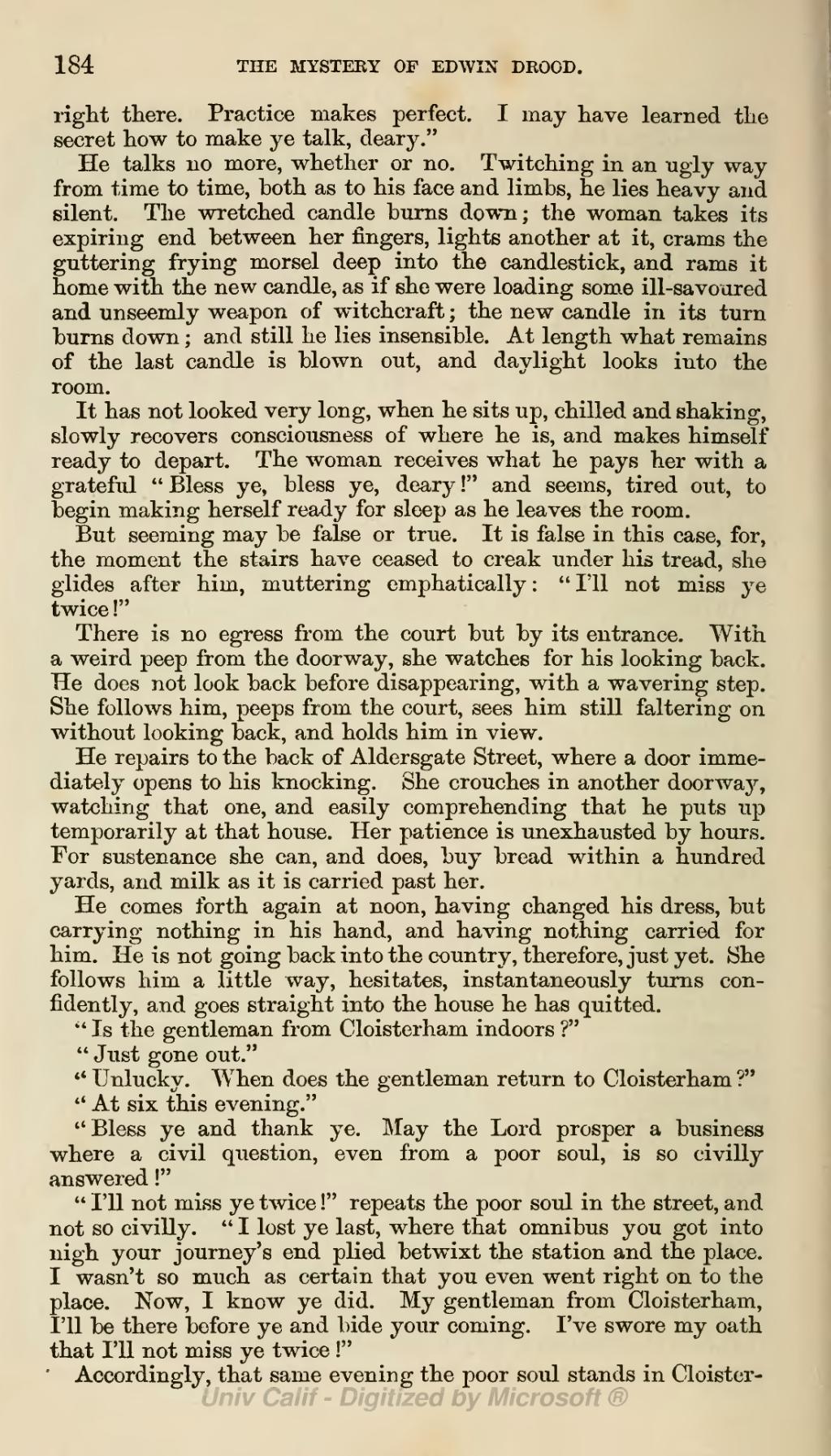right there. Practice makes perfect. I may have learned the secret how to make ye talk, deary."
He talks no more, whether or no. Twitching in an ugly way from time to time, both as to his face and limbs, he lies heavy and silent. The wretched candle burns down; the woman takes its expiring end between her fingers, lights another at it, crams the guttering frying morsel deep into the candlestick, and rams it home with the new candle, as if she were loading some ill-savoured and unseemly weapon of witchcraft; the new candle in its turn burns down; and still he lies insensible. At length what remains of the last candle is blown out, and daylight looks into the room.
It has not looked very long, when he sits up, chilled and shaking, slowly recovers consciousness of where he is, and makes himself ready to depart. The woman receives what he pays her with a grateful "Bless ye, bless ye, deary!" and seems, tired out, to begin making herself ready for sleep as he leaves the room.
But seeming may be false or true. It is false in this case, for, the moment the stairs have ceased to creak under his tread, she glides after him, muttering emphatically: "I'll not miss ye twice!"
There is no egress from the court but by its entrance. With a weird peep from the doorway, she watches for his looking back. He does not look back before disappearing, with a wavering step. She follows him, peeps from the court, sees him still faltering on without looking back, and holds him in view.
He repairs to the back of Aldersgate Street, where a door immediately opens to his knocking. She crouches in another doorway, watching that one, and easily comprehending that he puts up temporarily at that house. Her patience is unexhausted by hours. For sustenance she can, and does, buy bread within a hundred yards, and milk as it is carried past her.
He comes forth again at noon, having changed his dress, but carrying nothing in his hand, and having nothing carried for him. He is not going back into the country, therefore, just yet. She follows him a little way, hesitates, instantaneously turns confidently, and goes straight into the house he has quitted.
"Is the gentleman from Cloisterham indoors?"
"Just gone out."
"Unlucky. When does the gentleman return to Cloisterham?"
"At six this evening."
"Bless ye and thank ye. May the Lord prosper a business where a civil question, even from a poor soul, is so civilly answered!"
"I'll not miss ye twice!" repeats the poor soul in the street, and not so civilly. "I lost ye last, where that omnibus you got into nigh your journey's end plied betwixt the station and the place. I wasn't so much as certain that you even went right on to the place. Now, I know ye did. My gentleman from Cloisterham, I'll be there before ye and bide your coming. I've swore my oath that I'll not miss ye twice!"
Accordingly, that same evening the poor soul stands in Cloister-
